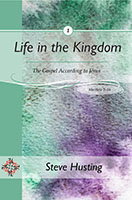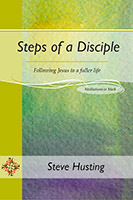Several different religions have various teachings on reincarnation, including Hinduism, Jainism, Sikhism, and Taoism, among others. Their teachings differ slightly, but all of them are in opposition to the tenets of the Christian resurrection. Here are some of the similarities and differences.
In reincarnation, an individual dies and comes back to life again in a different body to live on earth again. This reincarnated (which means “returning to flesh again”) person has no knowledge of the past life. In resurrection, the person rises from death with a new body, but with full consciousness of the past. In Revelation 6:10 we learn of martyrs asking God when their deaths will be avenged, showing that they remember the past.
In reincarnation, people’s good deeds usually influence a favorable next life while bad deeds an unfavorable next life. In resurrection, both good and evil are raised to life to stand before God for judgment. Judgment will depend on two deciding factors. If one has rejected God in life, then eternal damnation. If one has accepted Jesus, then rewards will be given or not depending on the faithfulness of one’s works.
Revelation 20:11-15 portrays the Great White Throne judgment, where people are dealt with according to their names in the Book of Life, or according to their works. Several passages in the gospels teach us about how God will judge us and give us rewards.
The cycle of reincarnation continues multiple times. But resurrection happens once (with few exceptions, such as Jesus raising someone from the dead earlier). Hebrews 9:27 tells us that after we die once, then comes the judgment. Reincarnation is wholly impersonal; no God looks over the process. You can have no guarantee how many good deeds you’ve done will break the cycle and bring you further along, or even if there is a more favorable “further along.” You have little help in making a bad life better. But when we receive Christ and repent of our sins, God gives us the indwelling Holy Spirit to help us live righteous lives and prepare us for a favorable judgment. Hebrews 13:5 tells us that he who created us will never leave nor forsake us.
Reincarnation is full of unknowns. You don’t know how many bad deeds were committed in the past life, nor do you know what the standard is for good and bad deeds. But in Christianity, God has placed all our blame upon his Son Jesus Christ and punished him in our place on the cross. We may simply confess and get right with God, and know that all our past sins will be washed away. We may knowingly arrive at the throne of Jesus with our sins forgiven. We know the standards of right and wrong because God’s Bible guides us.
What Do You Think?
a. Some Christians believe that some of their recollections of past lives persuades them to believe in reincarnation instead of the biblical resurrection. A personal experience merely tells us that we experienced something. We are to interpret our experiences by the Bible; in this way we’ll understand our experiences from God’s viewpoint. Should our personal experiences trump the Bible? Why or why not?
b. What are some of the reasons why someone would prefer reincarnation over resurrection if they heard both sides?
c. What makes the case for resurrection more believable than reincarnation?






